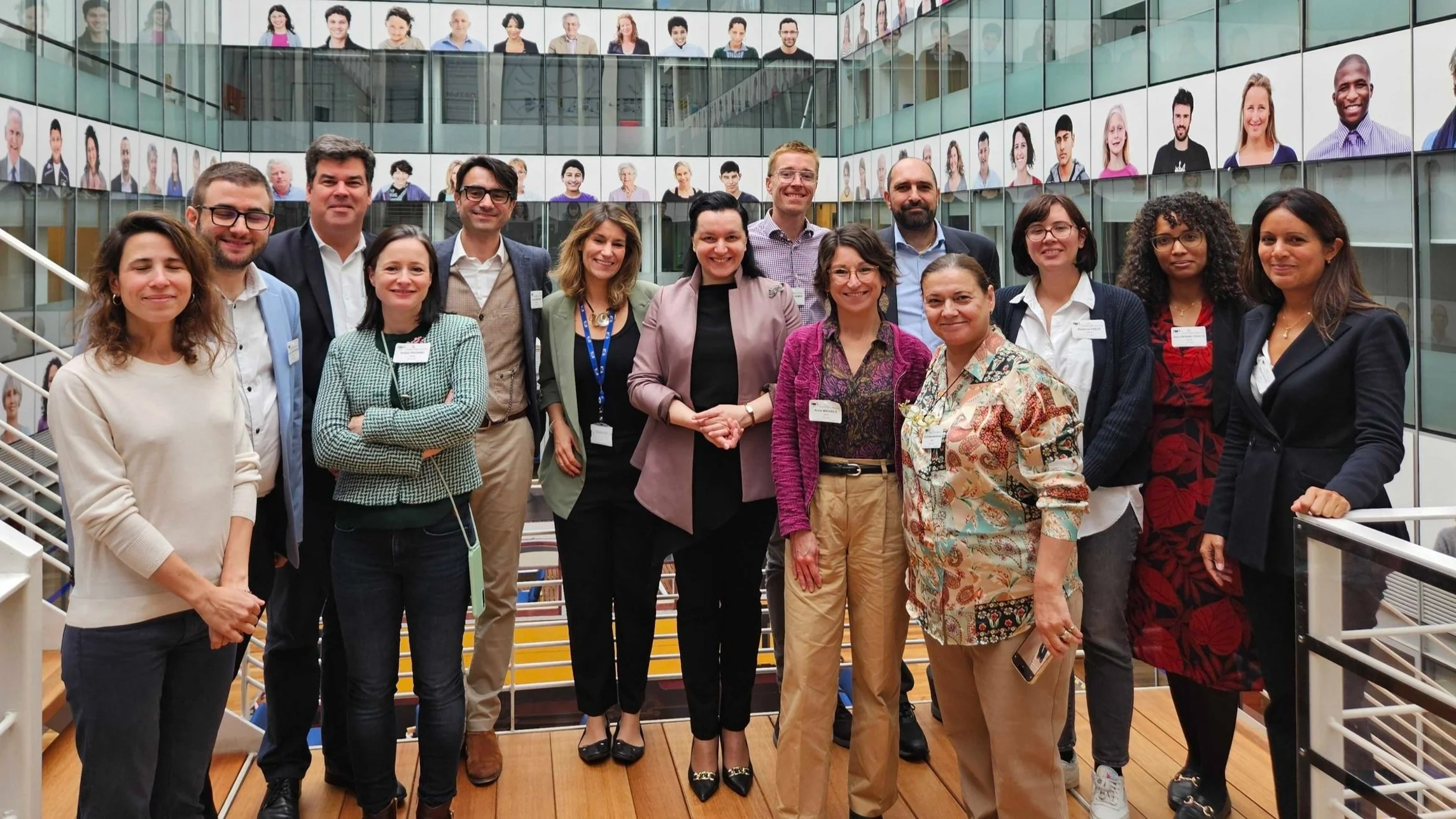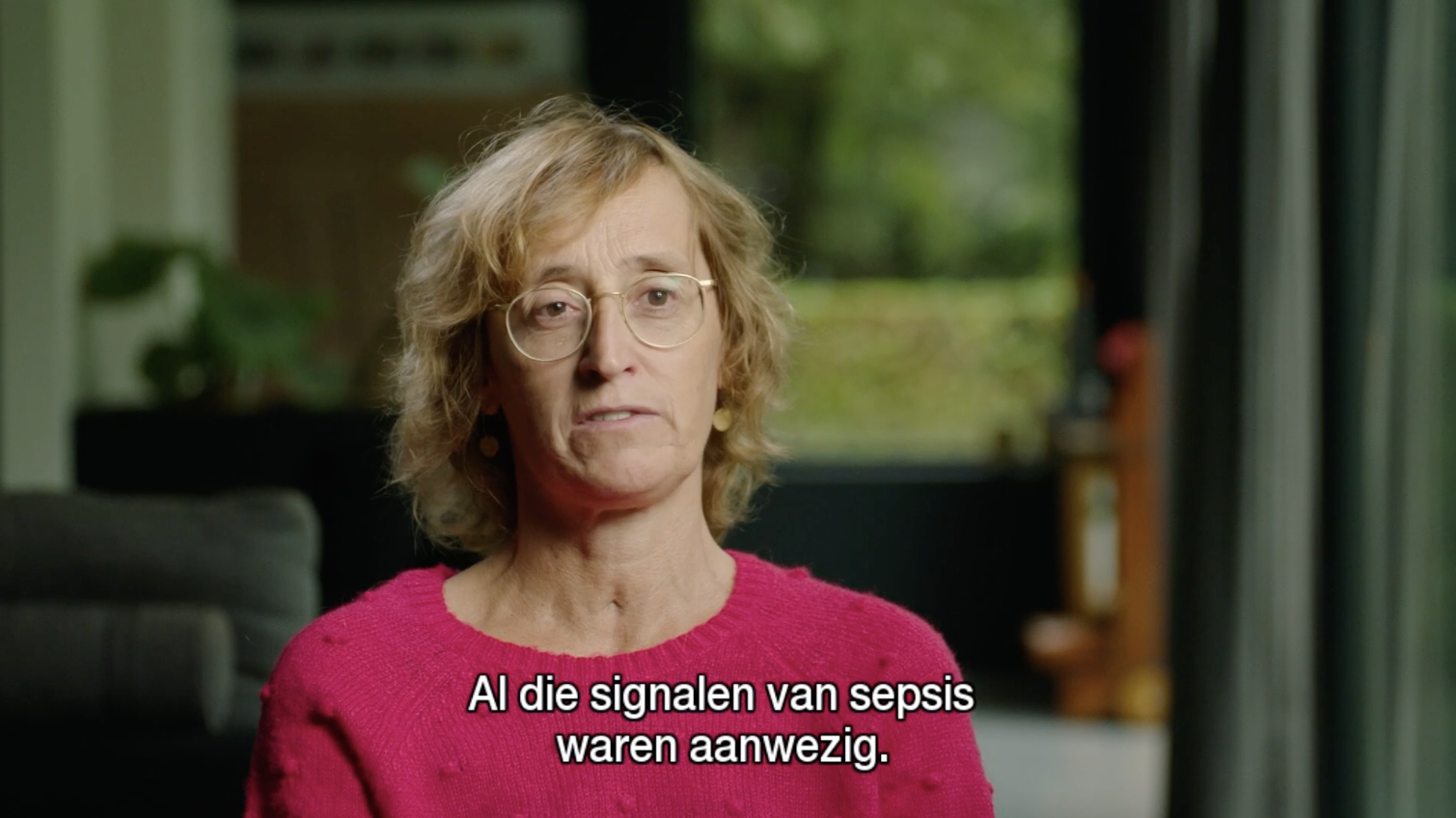On 8 October, at the occasion of the HERA Civil Society Forum meeting, Global Sepsis Alliance CEO, Dr Mariam Jashi, and Regional Alliances Coordinator, Simone Mancini, organised an outreach programme in Brussels, including encounters with key potential partner organisations, and Brussels based members.
Simone Mancini and Mariam Jashi at the HERA Civil Society Forum meeting.
The Health Emergency Preparedness and Response Authority (HERA) is a directorate-general of the European Commission created to prepare the EU for future pandemics. Its Civil Society Forum, of which the European Sepsis Alliance is a member, is a consultative body composed of organisations active in a broad range of public health policy areas and contributing to the definition of HERA’s strategy and initiatives. At the meeting, Dr Jashi stressed on the need to include sepsis awareness, early detection and treatment in the list of HERA priorities for 2025, considering its close relevance to other priorities, including antimicrobial resistance (AMR). A copy of the 2030 Global Agenda for Sepsis was also well received by HERA representatives at the meeting.
Dr Jashi and Mr Mancini also met with Nicholas Brooke and Amanda Bok, respectively Executive Director and Chief Partnership Officer of The Synergist, a non-profit organization that facilitates multi-stakeholder collaborative programs to address complex societal challenges. They discussed possible ways to maximise the impact of the 2030 Global Agenda for Sepsis and the outreach towards potential supporters and partners. Building on the valuable advices received, the exchange will continue in the coming months.
The GSA team with Frazer Goodwin and Milka Sokolović, EPHA.
The trip was also the opportunity to meet with the European Public Health Alliance (EPHA), one of the major public health organisations bringing together healthcare professional, patient groups, and civil society organisations across Europe. Dr Jashi presented the 2030 Global Agenda for Sepsis to EPHA Director General, Dr Milka Sokolović, and Senior Communications & Advocacy Manager, Frazer Goodwin. The two organisations share similar structure, challenges and ambitions and will continue the dialogue to identify possible areas of collaborations.
Mariam Jashi, GSA CEO, Marianne Haverkamp and Aurica Pria, ESA Patient and Family Support WG Co-Chairs, Simone Mancini, GSA Coordinator Regional Sepsis Alliances.
The day concluded with informal meetings with the Vice President of the GSA, Dennis Kredler, and later with the chairs of the European Sepsis Alliance Patient & Family Support Working Group, celebrating the recent nomination of sepsis survivor Marianne Haverkamp as co-chair. Dr Jashi shared the plan included in the 2030 Agenda to set up a Global Sepsis Patient Group, building on the experience of the ESA WG and of the call to action of the Paris Declaration, recently published on The Lancet.



























